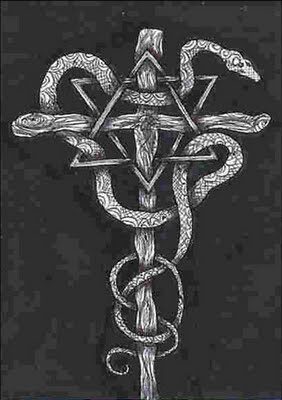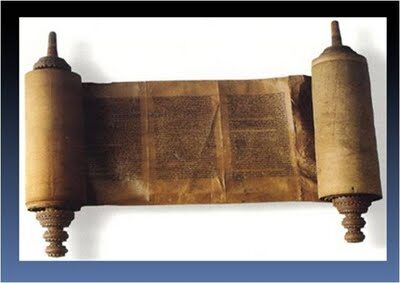As to the Christian explanation that Jesus did not fulfill all messianic prophecies 2,000 years ago due to the expectation of His doing so upon His return; anti-missionary Rabbi Aryeh Kaplan states that the Jews were,
unconvinced by the answer of the “second coming,” since it was not even hinted at in Biblical literature.1
Rabbi Shraga Simmons wrote,
Jewish sources show that_no concept of a second coming exists.2
In this essay we will ascertain that it is hinted at and clearly stated in Rabbinic literature. The question now becomes; why is it acceptable for Rabbis to develop this kind of concept but it is not acceptable for Christianity to do so? This was done in the concepts of one Messiah coming twice and one coming of two Messiahs.
Part 1: Two Comings of One Messiah
Part 2: Expectation of Two Messiahs
Two Comings of One Messiah:
Modern Rabbinic Judaism has reduced the dynamic figure and complex concept of the Messiah to the simplicity of a Supermessiah who will appear and instantly wipe out Israel’s enemies and rule as king. To believe this one must ignore a great deal of scripture and a great deal of ancient Rabbinic writings (some of which we considered in the post Jewish Messianic Concepts).
That Jesus did not fulfilled every messianic prophecy is a common means used in order to disqualify Jesus as Messiah even though Christianity has never claimed that Jesus has fulfilled every messianic prophecy. While this argument should come as no surprise, in reality it is no problem and not an issue. This is the whole reason for awaiting Jesus’ Second Coming; He will come again and fulfill the rest of messianic prophecies-some ancient Rabbis understood this.
Midrash Rabbah Ruth 5:6 on Ruth 2:14,
R. Jonathan interpreted this verse in six ways_The fifth interpretation makes reference to the Messiah. COME HITHER : approach to royal state. AND EAT OF THE BREAD refers to the bread of royalty; AND DIP THY MORSAL IN THE VINEGAR refers to his sufferings, as it is said, But he was wounded for our transgressions, bruised for our iniquities (Isa. 53:5).
AND SHE SAT BESIDE THE REAPERS, for he will be deprived of his sovereignty for a time, as it is said, For I will gather all nations against Jerusalem to battle; and the city will be taken (Zech. 14:2). AND THEY REACHED HER PARCHED CORN, means that he will be restored to his throne, as it is said, And he shall smite the land with the rod of his mouth (Isa. 9:4).
R. Berekiah said in the name of R. Levi: The future Redeemer will be like the former Redeemer [Moses]. Just as the former Redeemer revealed himself and later was hidden_so the future Redeemer will be revealed to them, and then be hidden from them. [italics in original bold and underlining added]
Incidentally: note the messianic application of Isaiah 53 (“R.” refers to Rabbi).
Midrash Pesikta Rabbati 15:10,
My beloved is like a gazelle [Song of Solomon 2:9]. R. Isaac said: As a gazelle appears and then disappears, so [Moses], the first Messiah, appeared to Israel and then disappeared from them_
R. Berechiah said in the name of R. Levi: Like the first redeemer, so the last redeemer; as the first one appeared before them and then disappeared from them, so the last redeemer will appear to them and then disappear from them. And for how long will he disappear from them? R. Tanhuma said in the name of R. Hama who said it in the name of R. Joshua, [and] R. Menahema said in the name of R. Hama bar Hanina: For forty-five days. With reference to this period Scripture says, From the time that the continual burnt offering shall be taken away_there shall be a thousand two hundred and ninety days (Dan. 12:11), and then goes on to say, Happy is he that waiteth, and cometh to the thousand three hundred and five and thirty days (Dan. 12:12).
These days, over and above the number given in the previous verse, to what do they refer? They refer to the period of forty-five days during which the Messiah, who will have appeared to them, will disappear from Israel again. [By way of testing their faith]_
R. Isaac son of R. Marion said: At the end of the forty-five days, the Holy One, blessed be He, will appear to them and bring down the manna for them. [italics in original bold and underlining added]
Incidentally: note the messianic application of Daniel 12.
Midrash Rabbah-Ecclesiastes I. 9, § I-I0, § I,
R. Berekiah said in the name of R. Isaac, ‘As the first redeemer was, so shall the later Redeemer be. What is stated of the former redeemer? And Moses took his wife and his sons, and set them upon an ass (Ex. IV, 20). Similarly will it be with the latter Redeemer, as it is stated, Lowly and riding upon an ass (Zech. IX, 9).
As the former redeemer caused manna to descend, as it is stated, Behold, I will cause to rain bread from heaven for you (Ex. XVI, 4), so will the latter Redeemer cause manna to descend, as it is stated. May he be as a rich cornfield(1) the land (Ps. LXXII, 16) As the former redeemer made a well to rise [V. Num. XXI, 17 f], so will the latter Redeemer bring up water, as it is stated, And a fountain shall come forth of the house of the Lord, and shall water the valley of Shittim (Joel IV, 18).
Footnote: (1) “[Hebrew font not available] is read as [Hebrew font not available] ‘pieces of bread.’”
“In the corresponding parallel passage Rabbi Yitshak Bar Maryon (ca. 290-320 AD) says that, ‘At the end, the LORD himself will appear and provide manna from heaven.’”3
Commenting on the Dead Sea Scrolls, Hebrew scholars Michael Wise and James Tabor wrote,
The Messiah of our text is thus much closer to the Christian Messiah, in this regard, than in any previously published text and requires us to reexamine the previously, rather restricted, views of Messianic expectations at Qumran_
There is no doubt that the Qumran community had faith in the ultimate victory of such a Messiah over all evil. However, a close reading of these texts reveal an additional theme, equally dominant-that of an initial, though temporary, triumph of the wicked over righteousness. That is, there was the belief among the Qumran community that the Messiah would suffer initial defeat, but that he would ultimately triumph in the end of days.4
~~~~~~~~~~~~~~~~~~~~~~~~
A plea: I have to pay for server usage and have made all content on this website free and always will. I support my family on one income and do research, writing, videos, etc. as a hobby. If you can even spare $1.00 as a donation, please do so: it may not seem like much but if each person reading this would do so, even every now and then, it would add up and really, really help. Here is my donate/paypal page.
Due to robo-spaming, I had to close the comment sections. However, you can comment on my Facebook page and/or on my Google+ page. You can also use the “Share / Save” button below this post.


